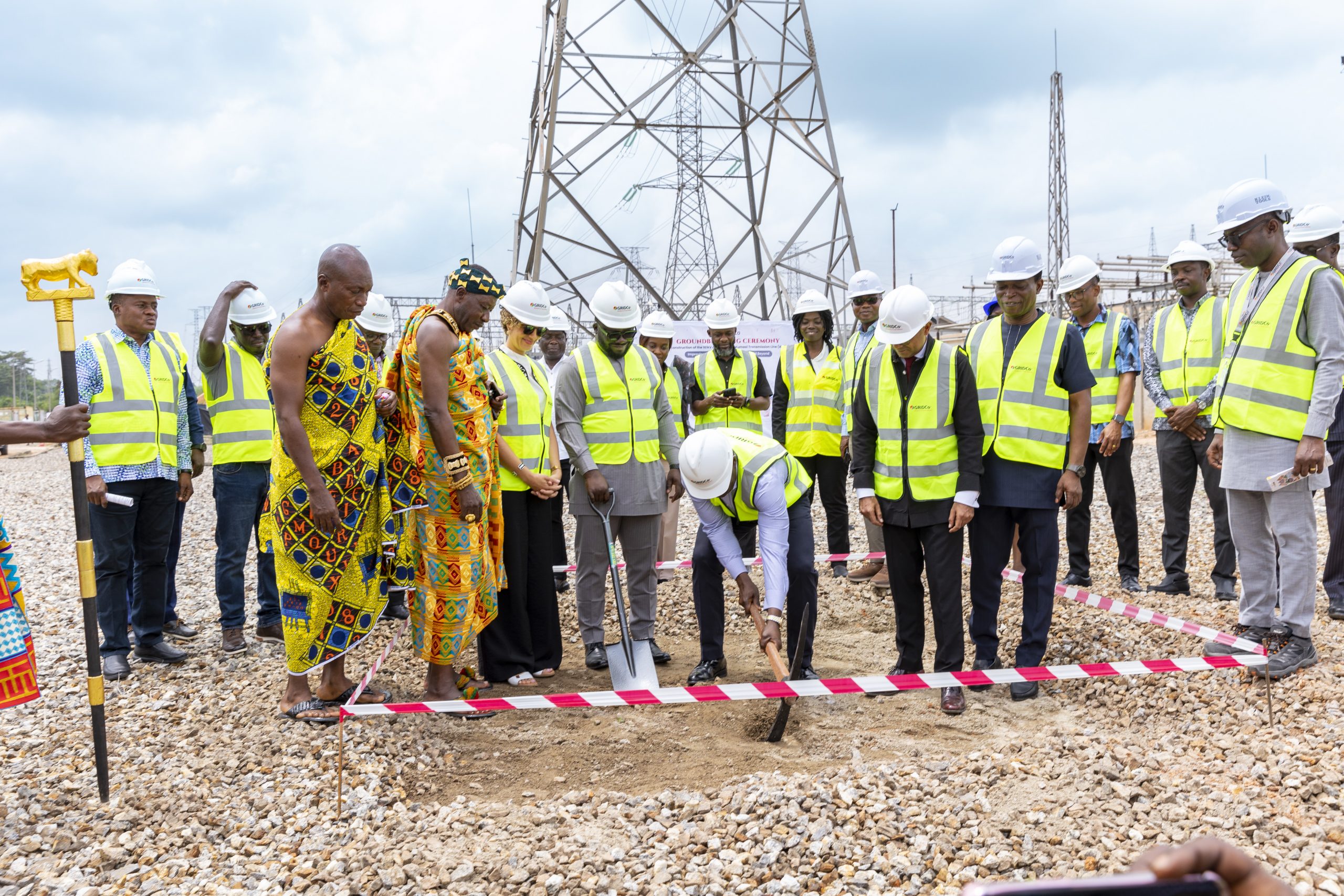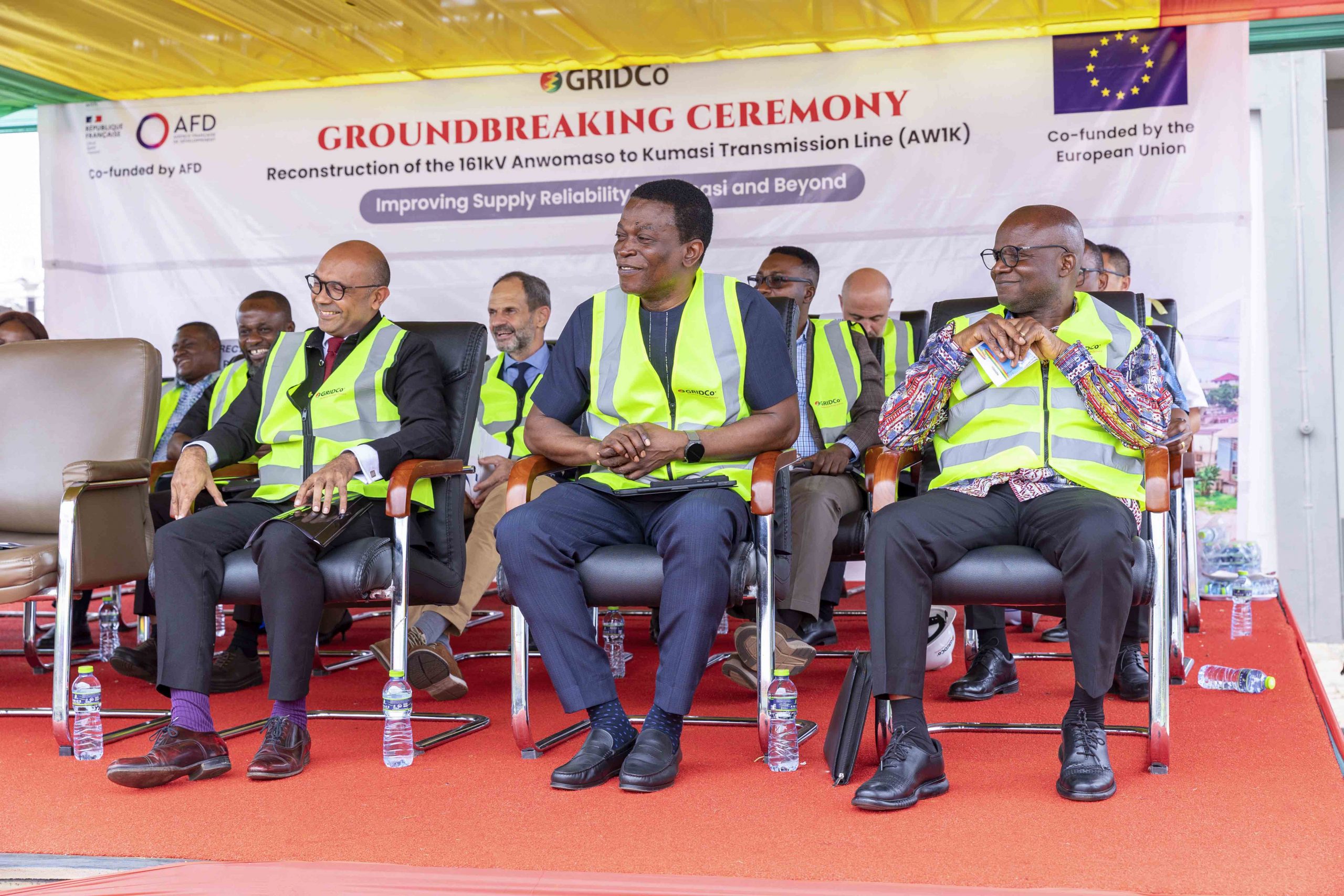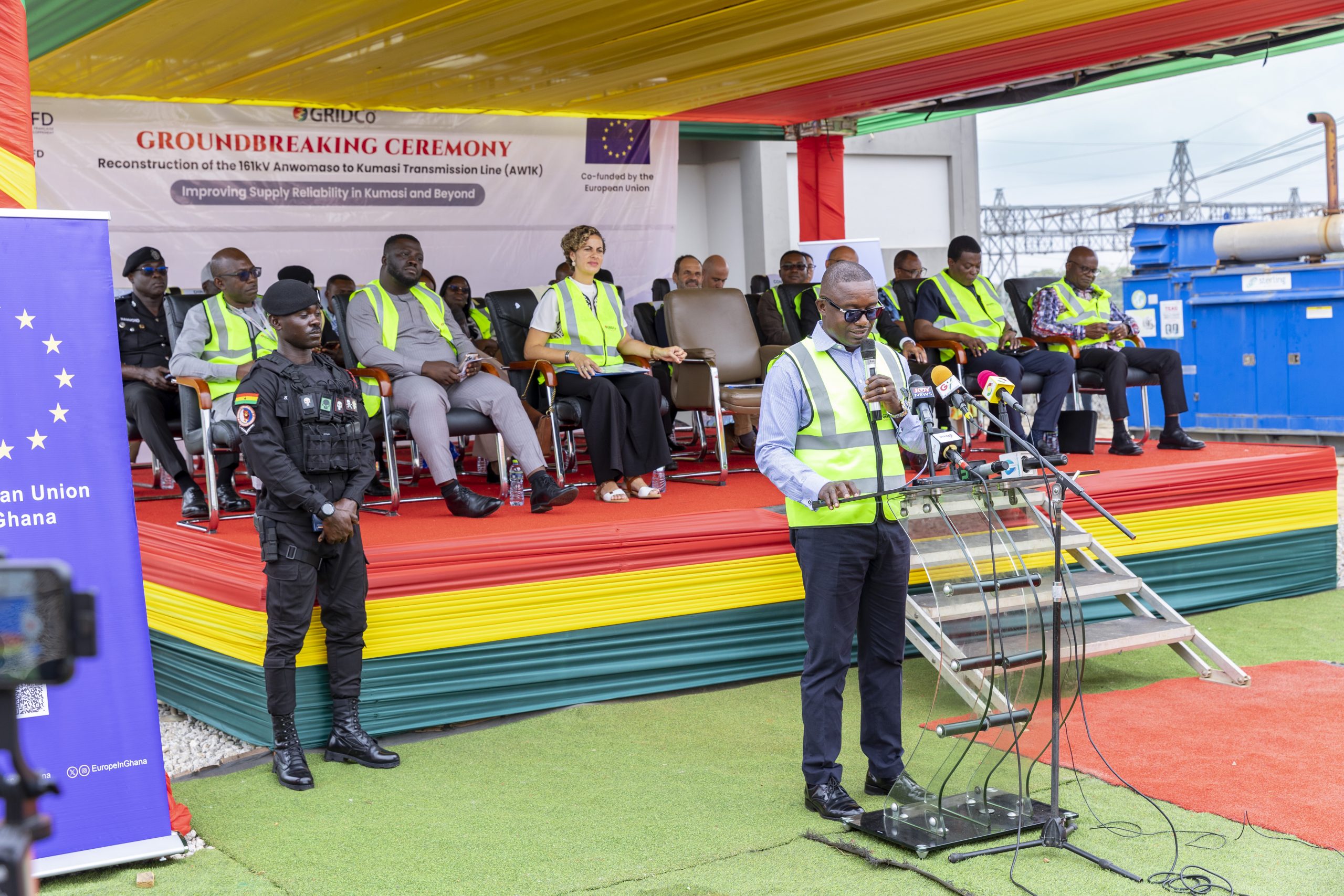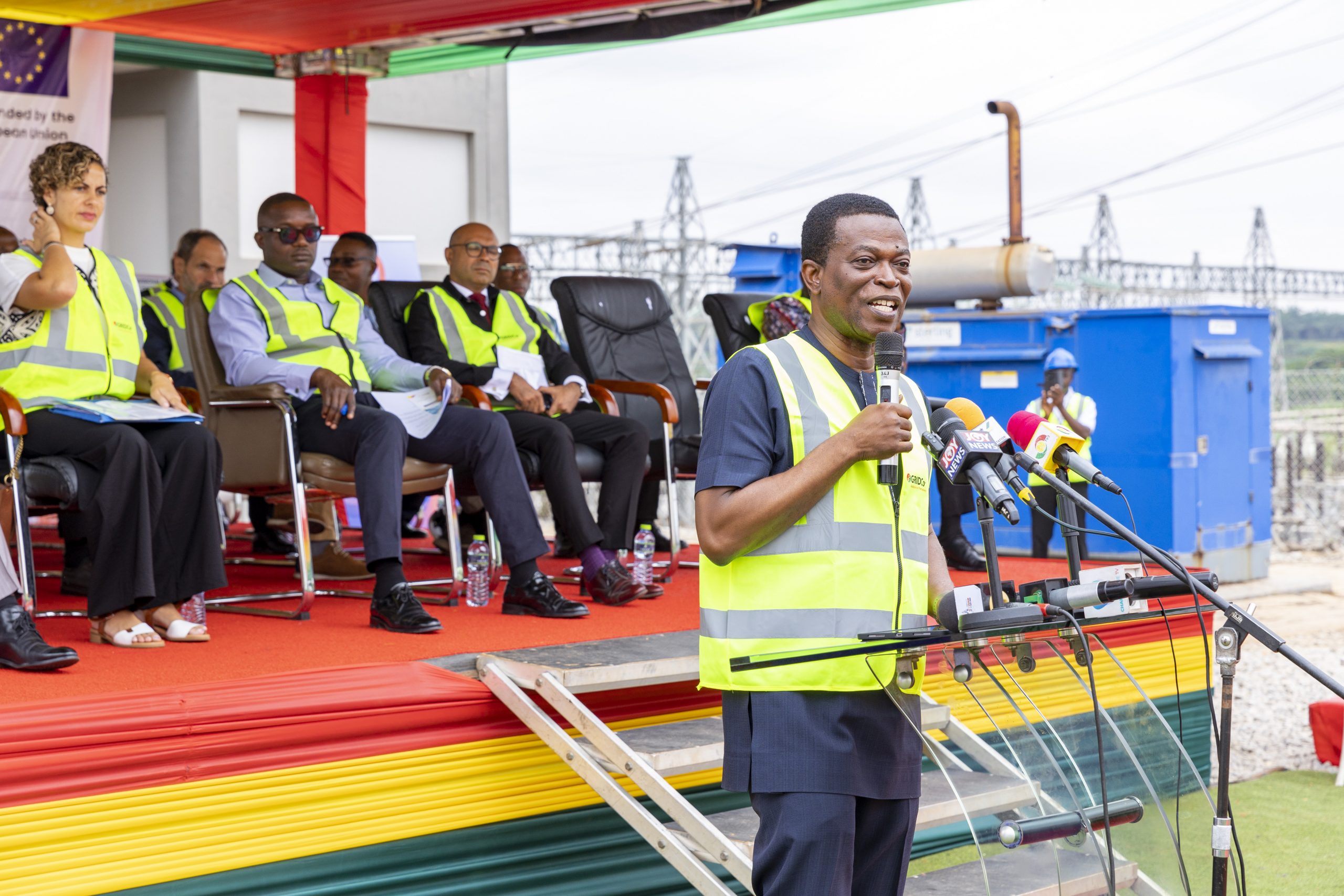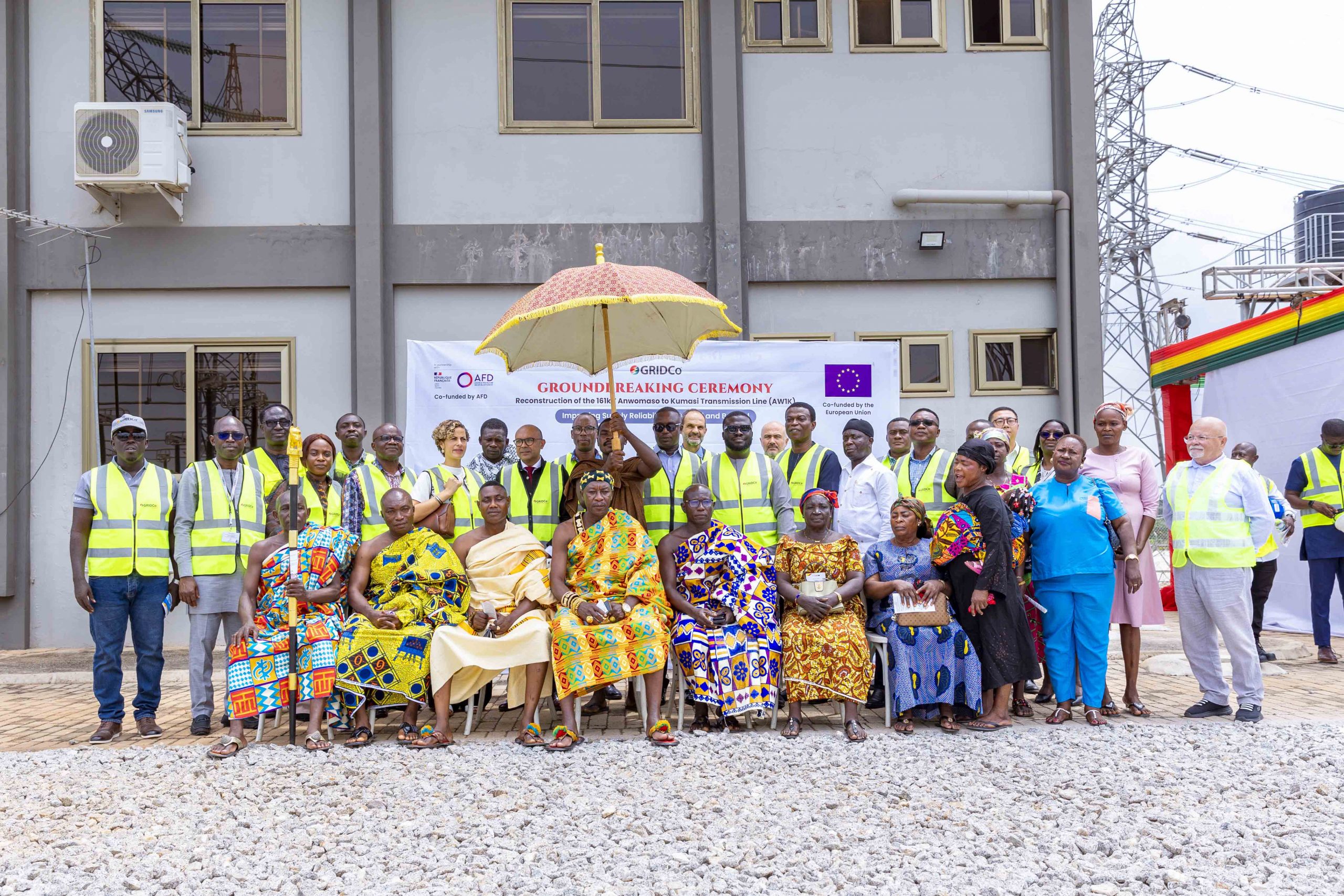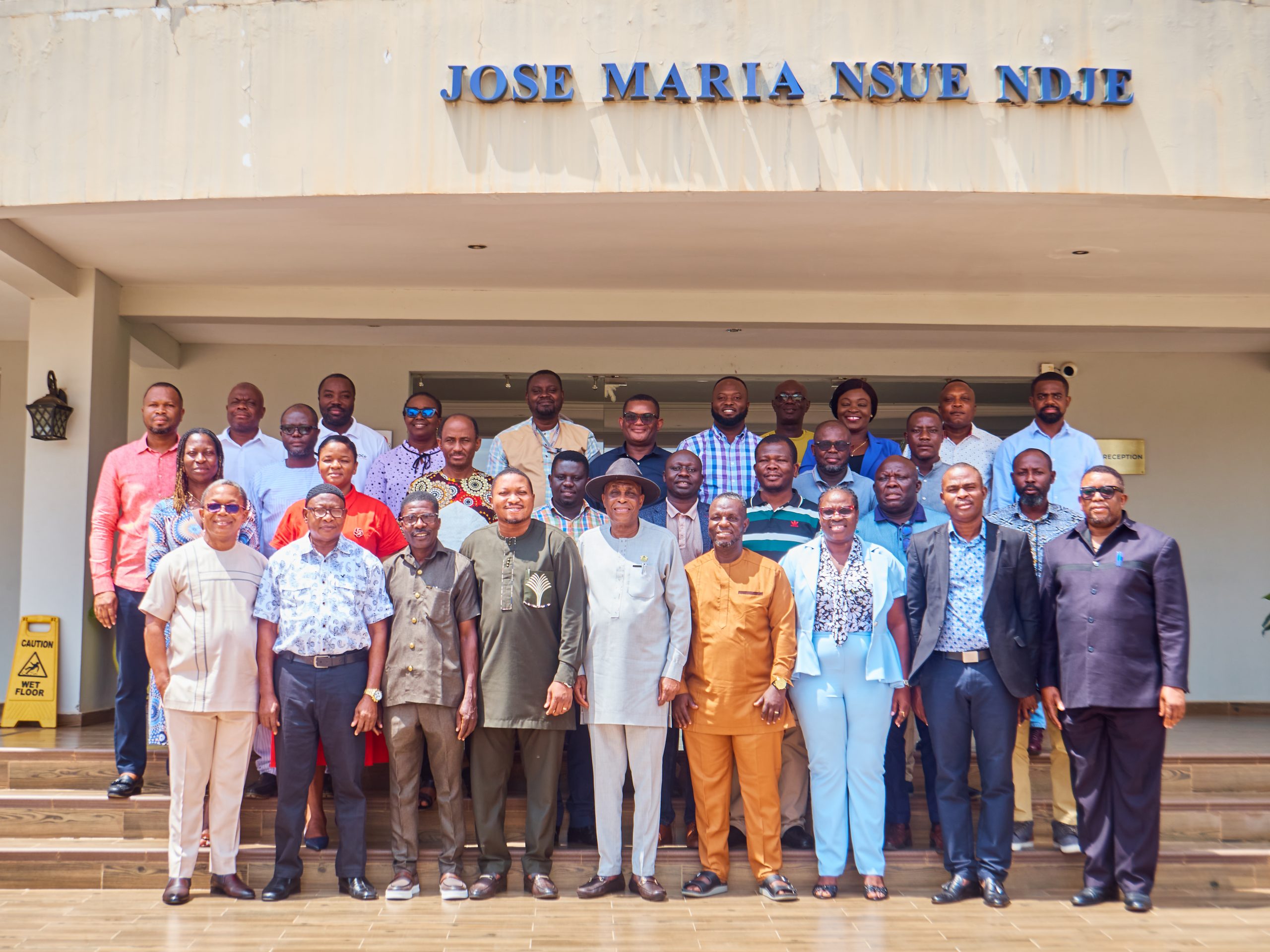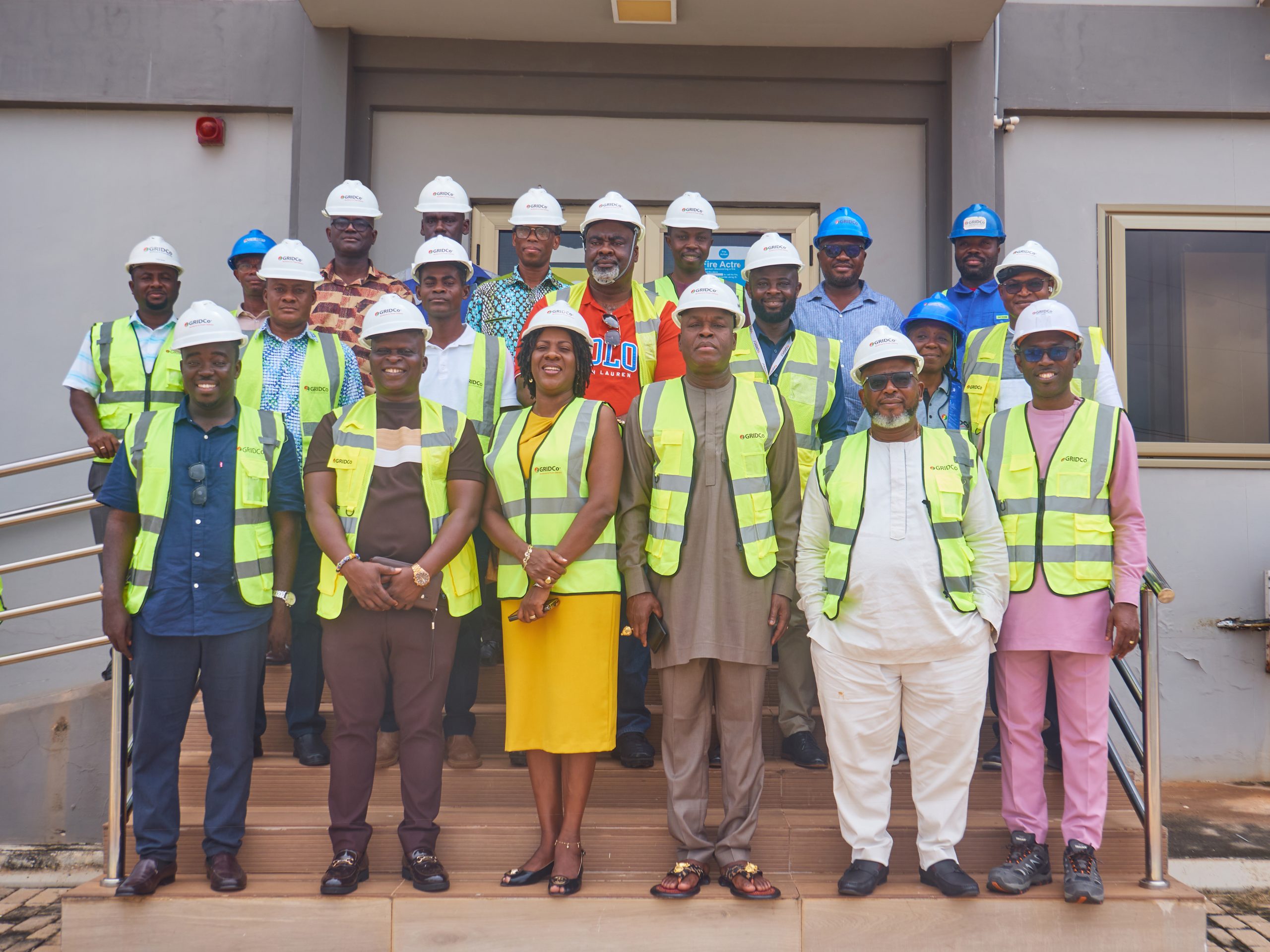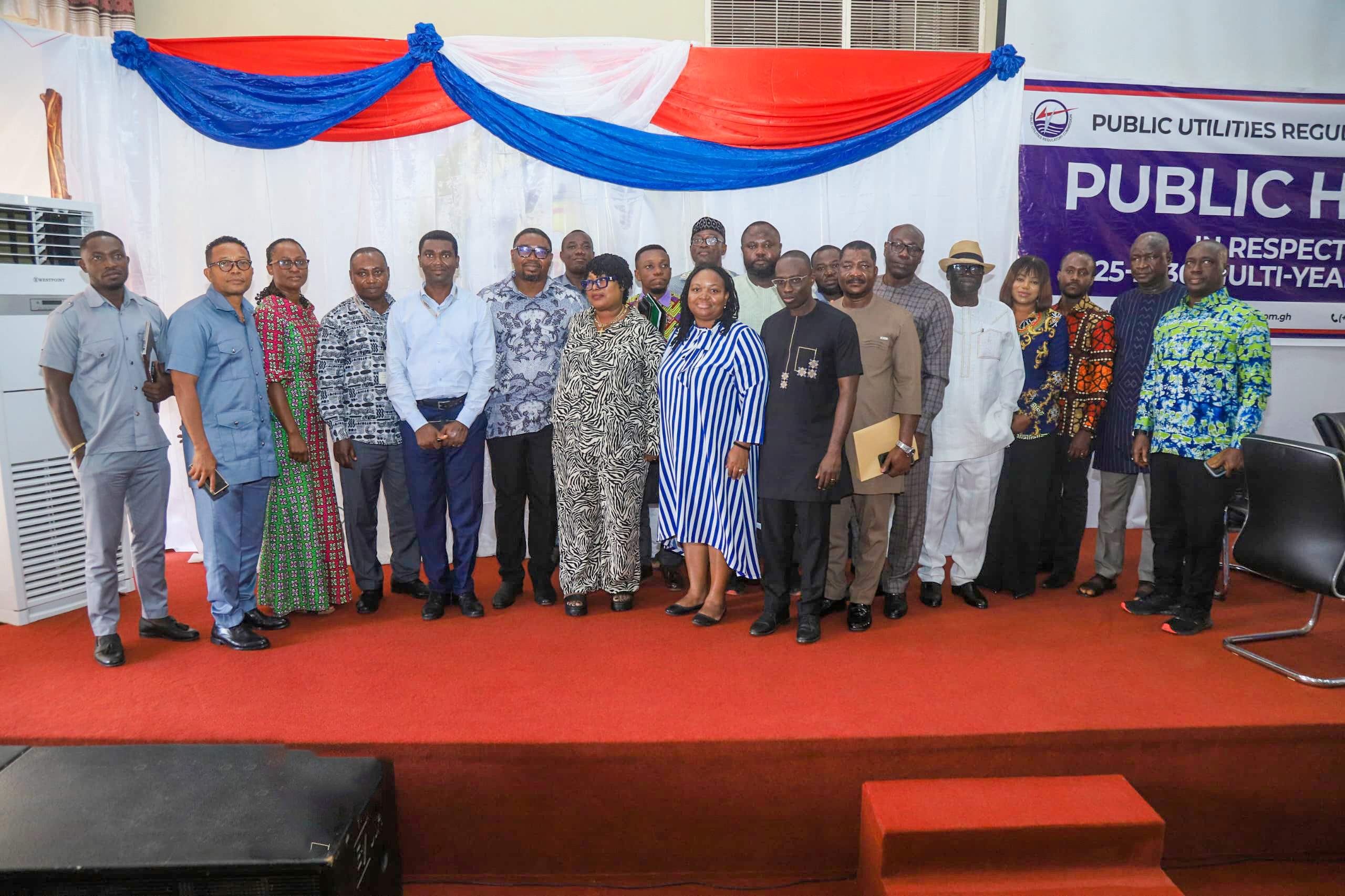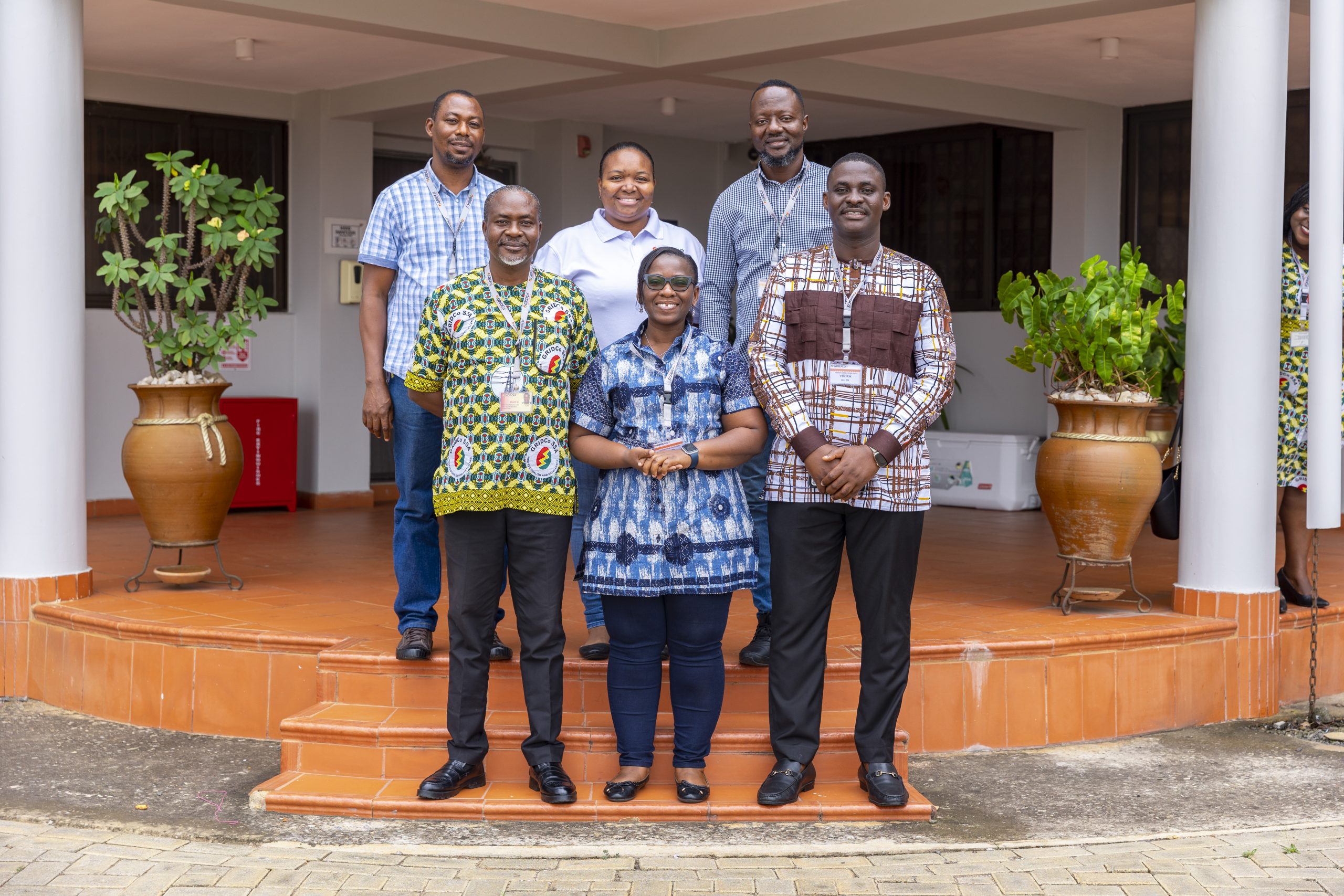In a significant stride towards power reliability and sustainable development, the Ghana Grid Company LTD., (GRIDCo), in partnership with the European Union (EU) and Agence Française de Développement (AFD), hosted a groundbreaking ceremony with Ministry of Energy Officials in attendance, to officially launch the reconstruction of the 161kV Anwomaso–Kumasi (AW1K) Transmission Line Project.
The €8.7 million project, co-funded under the Team Europe initiative, marks a major infrastructure milestone aimed at enhancing power supply in the Ashanti Region while securing the Ghana–Burkina Faso interconnection line to facilitate cross-border electricity exports.
The reconstruction involves upgrading the existing 18-kilometre, single-circuit line from Ahodwo (K1BSP) to Anwomaso (K2BSP) into a double-circuit 161kV transmission line, with an increased capacity of approximately 1,000MVA, up from the current 364MVA. The project also includes expansion of the associated substations and significant enhancements to GRIDCo’s Supervisory Control and Data Acquisition (SCADA) and telecommunication systems.
Kicking off the ceremony with statement of purpose, the Acting Chief Executive of GRIDCo, Ing. Mark Baah underscored the transformative nature of the Anwomaso–Kumasi Transmission Line Project, describing it as a significant milestone in the Company’s long-term infrastructure development strategy. He emphasised that the project has been part of GRIDCo’s strategic expansion agenda for many years, acknowledging the patience and collaboration that had brought it to fruition.
He noted that the existing AW1K transmission line, which links Ahodwo (K1) to Anwomaso (K2), currently operates near its thermal limit, often resulting in low voltage levels in Kumasi and in outlying areas such as, Dunkwa. The reconstruction with double transmission capacity would ease loading pressures, and significantly reduce system losses.
Ing. Baah noted this initiative goes beyond the installation of cables and steel towers saying, “It is an investment in the people. It is about connecting communities to opportunity, industries to the energy that fuels, and anchoring our national aspirations to the realities of growth and development”. He highlighted the project’s potential to strengthen national and regional energy systems, support industrial growth, and improve the resilience of the power grid.
Ing. Baah expressed gratitude to the funding partners EU and AFD, and also acknowledged the critical role of Energy Ventures (GH) Limited (EVL), contractors for the recently completed 24km Kumasi–Konongo (J2K) transmission line upgrade, whose successful delivery laid the foundation for the commencement of the current project.
In his remarks, the Ashanti Regional Minister, Hon. Dr. Frank Amoakohene, expressed appreciation to GRIDCo and its partners for prioritising power infrastructure in the region. He described the project as a timely response to the region’s rapid urbanisation and growing energy demand. He indicated that, “The Ashanti Region is a vital engine of trade, commerce, and industry. Any intervention in our energy infrastructure has far-reaching implications for national development”. He commended the Energy Minister’s leadership and reaffirmed the Ashanti Regional Coordinating Council’s commitment to supporting the project through security and administrative backing.
The ceremony featured remarks from representatives of the European Union and the Agence Française de Développement (AFD), who reaffirmed their commitment to supporting Ghana’s sustainable energy transition.
In an emotionally resonant speech, the EU Ambassador to Ghana, H.E. Irchad Razaaly, highlighted what he described as his final official visit to Kumasi, praised the project as a symbol of Europe’s confidence in Ghana’s green energy ambitions. He lauded the AW1K project as more than just a transmission line, but a symbol of enduring cooperation and shared purpose between Ghana and the EU.
The Ambassador underscored that the EU’s €10 million in grant funding contributed by European taxpayers was made available under the Team Europe initiative, in close coordination with AFD and the World Bank. He emphasised that the transmission line upgrade, along with co-financed SCADA and telecommunications systems, would not only enhance grid monitoring and integration but also prepare Ghana for a smarter, greener energy future.
“This initiative will help position Ghana as a regional energy hub and improve reliability for households and businesses. We are proud to support Ghana’s clean energy transition and economic resilience,” the Ambassador stated. He praised the Government’s energy sector reforms, and calling for continued accountability, private sector engagement, and increased investment in renewable energy.
Representing the French Government, Country Director of the Agence Française de Développement (AFD), Mrs. Clementine Dardy echoed the EU’s message of solidarity and sustainable development. She highlighted that AFD’s role in the project is part of a nearly four-decade partnership with Ghana in the energy sector, one grounded in climate-conscious infrastructure development.
Mrs. Dardy noted that the project aligns with France’s global climate commitments and Ghana’s own energy transition strategy, stating that the new transmission line is not only technically ambitious but also socially impactful, helping to power homes, industries, and livelihoods.
“This investment strengthens Ghana’s grid, while supporting climate adaptation. It represents our joint resolve to promote clean, reliable, and inclusive energy systems”, she remarked. She commended GRIDCo’s leadership and reaffirmed France’s commitment to working hand-in-hand with Ghana on future infrastructure and energy initiatives.
Delivering the keynote address, Hon. Dr. John Abdulai Jinapor, Minister for Energy and Green Transition, described the project as a vital part of Ghana’s broader reforms aimed at modernising and stabilising the power sector. Reflecting candidly on the state of the sector upon assuming office, the Minister noted that targeted interventions had restored stability and strengthened performance indicators and praised the collective effort that had restored system stability. The Minister positioned Kumasi as a future generation and transmission hub, with over 1,000MW of generation capacity expected through projects such as AMERI, AKSA Energy, and CENIT Energy. He also outlined ongoing reforms across the electricity and petroleum value chains, policy efforts to expand renewable energy adoption, promote electric vehicle infrastructure, tariff system improvements, and encourage private sector participation in power distribution.
“We are shifting toward a resilient, self-reliant, and efficient energy system. This project consolidates the gains we’ve made. It is part of our strategy to decentralise power generation, strengthen grid resilience, and ensure Ghana becomes a regional power exporter”, the Minister stated.
The formal proceedings were complemented by a vibrant cultural dance performance, paying homage to the rich heritage of the Ashanti Region and energising the event with colour, rhythm, and symbolism. The display served as a reminder of the deep connection between culture, community, and national development.
The ceremony was graced by the Minister of Energy and Green Transition, Hon. Dr. John Abdulai Jinapor; Ashanti Regional Minister, Hon. Dr. Frank Amoakohene; EU Ambassador to Ghana, H.E Irchad Razaaly; Country Director of AFD, Mrs. Clementine Dardy; Head of Cooperation (EU), Mr. Massimo Mina; Manager in Charge of Projects (AFD), Ms. Doris Agbevivi; Nana Osei Boa III, Chief of Anwomaso and his Traditional Council; Chief Director of Power, Mr. Solomon Adjetey and Ministry of Energy Officials, GRIDCo Management and the Media.
The ceremony concluded with a symbolic groundbreaking to signify the commencement of construction. As GRIDCo’s CEO aptly concluded, “While this moment is ceremonial, the real work lies ahead. May our dedication remain steadfast, our partnerships grow stronger, and our achievements endure for generations.” The project, when completed, is expected to stand as a beacon of international cooperation, engineering excellence, and Ghana’s commitment to building a resilient and sustainable energy future.
